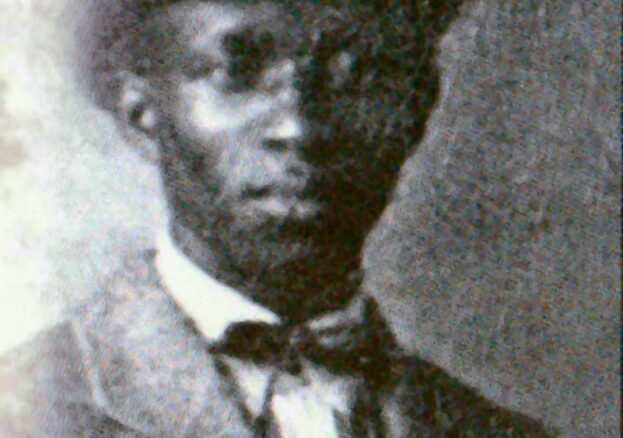
He gave his address as Collingwood, North Shields. According to Lionel’s children, “He (Lionel) felt British. He was descended from slaves taken from West Africa, but English was his first language.
His schoolbooks were written by British people; he lived under British law; he was brought up to admire British poets and British musicians and British scientists and British politicians and British nobility. His allegiance was to King George V, to his Mother Country and to British people all over the world. When Britain declared war on Germany, he felt included.”
Lionel joined the army at the York Depot of the York and Lancaster Regiment and was sent out with the No. 32 British Expeditionary Force to the Western Front in 1916. He fought in the battles of the Somme where as a result of a gas attack his lungs were burnt.
In February 1918 Lionel was transferred to the King’s Royal Rifles and would be injured once again with a shell wound on his back. Lionel would serve until February 1919 when he was discharged. He returned to Britain for treatment at a hospital in Coventry for broncho pneumonia.
It was clear that Lionel would never fully recover as a result of the damage done to his lungs and so was discharged to a convalescent home in Warwick.
Lionel decided to leave the convalescent home to find work with the result that he would meet Beatrice Whitehouse a local teenager from Leamington Spa. Beatrice came from a local working-class family; her father was known as a bareknuckle prize-fighter.
Lionel and Beatrice were married on 24 December 1921 and would have five children together. While Lionel was eventually to find work as a master moulder at Bissel’s Foundry, his health continued to deteriorate, and he was admitted to a Ministry of Pensions Hospital in Birmingham.
Lionel was to pass away on 6 March 1929 he passed away, his funeral hearse was drawn by four black horses, with six soldiers as an escort. Lionel was buried in the Brunswick Street Cemetery, Leamington Spa. His funeral was paid for by the Leamington branch of the British Legion.
Two of Lionel’s sons, Randolph and Jackie, would achieve success through boxing. Randolph was briefly world middleweight champion and Jackie co-authored a book about his life, ‘Fighting Jack – You Gotta Fight Back’ in which he talks with pride about his father’s service during the First World War.
As the nation’s largest Armed Forces charity, the Royal British Legion (RBL) is dedicated to ensuring that all those who served and sacrificed, and who continue to do so, in defence of our freedoms and way of life, from both Britain and the Commonwealth, are remembered.
In our acts of Remembrance, the RBL remembers,
- The sacrifice of the Armed Forces community from Britain and the Commonwealth.
- Pays tribute to the special contribution of families and of the emergency services.
- Acknowledges the innocent civilians who have lost their lives in conflict and acts of terrorism.
The story of Black British and Black African and Caribbean service and sacrifice is one that we are keen to share, a story of men and women who have done so much in defence of Britain and in protecting all our citizens. A story that is replete with stories of bravery and courage, as epitomised by Victoria Cross winner Johnson Beharry.
 Therefore, to mark 100 years since Britain’s current Remembrance traditions first came together, the RBL has bought together over 100 stories of British and Commonwealth African and Caribbean service and sacrifice. The stories range from the First World War to the present day and are of servicemen and women from across Britain, Africa and the Caribbean, representing both the armed forces and emergency services.
Therefore, to mark 100 years since Britain’s current Remembrance traditions first came together, the RBL has bought together over 100 stories of British and Commonwealth African and Caribbean service and sacrifice. The stories range from the First World War to the present day and are of servicemen and women from across Britain, Africa and the Caribbean, representing both the armed forces and emergency services.
The RBL wishes to offer special thanks to Stephen Bourne for his help in putting these stories together. Stephen Bourne has been writing Black British history books for thirty years. For Aunt Esther’s Story (1991) he received the Raymond Williams Prize for Community Publishing. His best-known books are Black Poppies (2019) and Under Fire (2020). His latest book Deep Are the Roots – Trailblazers Who Changed Black British Theatre was recently published by The History Press. For further information about Stephen and his books, go to his website www.stephenbourne.co.uk
